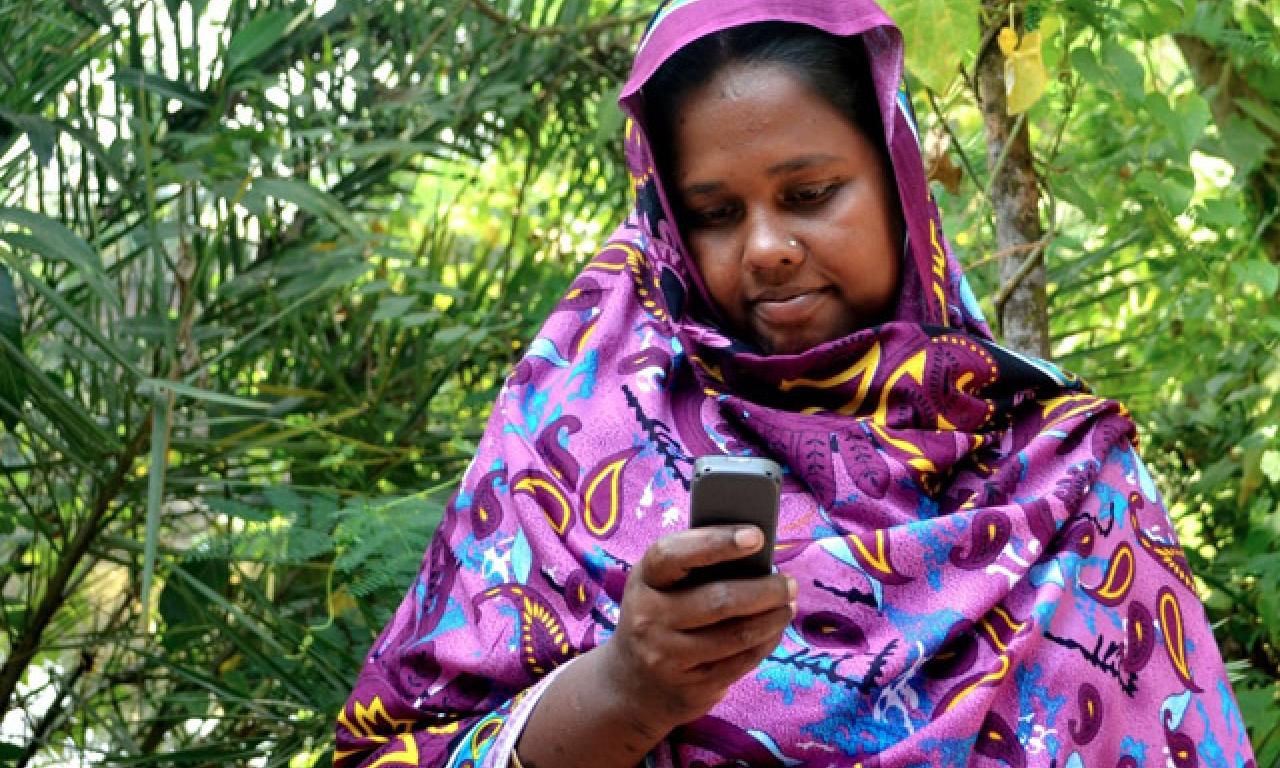
In Bangladesh, the rural poor, including many small-scale fish farmers often lack access to formal banking or credit and this presents major challenges when it comes to selling their products outside their own community.
Recommended publications
- Review of aquaculture and fish consumption in Bangladesh
- Assessment of the carp seeds value chain in Southern Bangladesh
In Bangladesh, the rural poor, including many small-scale fish farmers often lack access to formal banking or credit and this presents major challenges when it comes to selling their products outside their own community.
Fish farming, or aquaculture, has a complex value chain and, as such, swift financial transactions are crucial in order to release produce to buyers. Expedited cash flow can potentially reduce stock loss and increase revenue.
In 2014, the USAID-funded Mobile Solutions Technical Assistance and Research (mSTAR) project introduced mobile banking technology that allows nongovernmental organizations implementing USAID projects to switch from cash payments to digital transactions. The mStar project, implemented by FHI360 seeks to increase access to, and use of, mobile and digital technologies by low-income individuals, civil society, local government institutions and private-sector stakeholders.
In 2014 mSTAR provided a grant to the USAID Aquaculture for Income and Nutrition (AIN) project for a trial of mobile banking. The AIN project implemented by WorldFish focuses on improving household income and nutrition through knowledge dissemination and training.
A welcome result of AIN has been increased productivity – leading to more fish. As a result demand for quality fish seed from AIN-supported hatcheries has increased. Mobile money provides a mechanism for farmers to send an advance to a hatchery thereby significantly reducing travel time from three trips to one. Also, in relying on supported hatcheries instead of travelling hawkers the farmer has a much more reliable source of fish seed.
mSTAR has helped train over more than 3000 farmers on mobile money, creating opportunities for easier transactions with suppliers or and buyers. The process also eliminates the need for middlemen, who absorb a portion of revenue.
Unlike conventional banks, Mobile Financial Service Providers (MFSPs) offer a more streamlined registration process. Bypassing lengthy procedures for opening a bank account and ensuring quick money transfers to the accounts of suppliers such as hatchery and nursery owners, mobile money has considerably eased the payment process.
Bangladesh currently leads the world in mobile money banking with more than 20 million registered subscribers. It is one of the few countries that has a bank-led model, different to that of East Africa where telecom companies are the service providers. There are now more than 150,000 mobile money agents in Bangladesh.
Sheikh Sagor operates a tilapia and carp hatchery in Bagerhat, Khulna district. After learning about mobile banking at an mSTAR project training session, he opened an account. He began using mobile money to purchase items needed at his hatchery such as nets, polythene bags and feed. He has since been selling fish seed to buyers paying via mobile transactions. Mobile money has helped him to increase his customer base, save his own and his customers’ time and thanks to advance payments he is able to better plan his production schedule through advance purchases.
Another beneficiary, Saidur Rahman, a fish farmer from Rampal, Bagerhat received training on aquaculture over a two and half year period from the USAID AIN project. He now regularly uses the mobile money system to make payments, saving valuable time that he previously spent travelling to the nearest town and queuing at the bank.
Rural communities stand to gain the most from mobile banking. Building on the early success of mStar there is great opportunity to raise awareness. In particular, there is an opportunity to address the gender digital divide in a country where more men than women have access to mobile phones and banking. Women contribute immensely to homestead farming, but due to traditional norms limiting women’s mobility and access to and control over assets and resources, they have little access to market places, retail outlets and mobile phones.
Mobile banking has the potential to help women navigate these barriers by providing a tool to engage in the sector remotely. As equal partners in the household income structure, women can become better involved in long term financial planning for the family.
Mobile banking has also increased the efficiency of USAID-funded development projects in Bangladesh. Since 2014, mStar has enabled AIN to make payments to almost 13,000 farmers who participated in training workshops. For the AIN project alone, USAID has calculated savings of approximately US $19,000 when costs of human resources and travel are taken into account. The AIN project continues to use mobile money to disburse funds to rural communities.
With increasing mobile penetration and the introduction of 3G connectivity in Bangladesh, there are more opportunities opening-up for entrepreneurs. Access to mobile banking in rural communities is increasing and gradually more businesses will be accepting mobile payments. This development is contributing to increased fish production leading to more income and improved access to fish also in remote areas.
